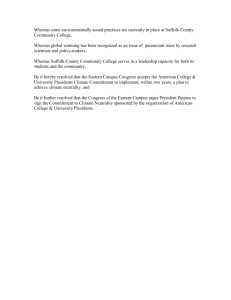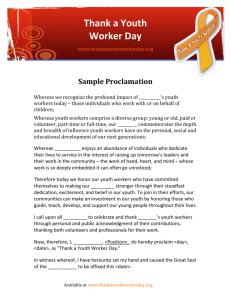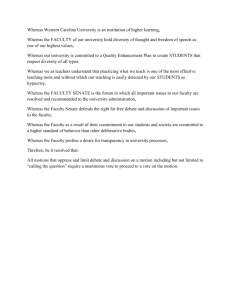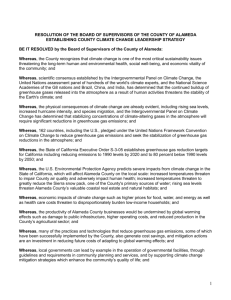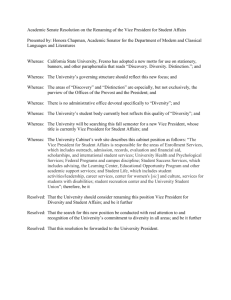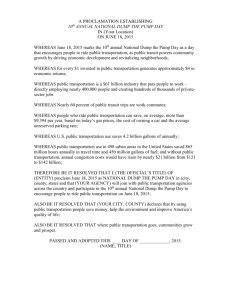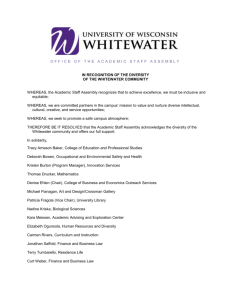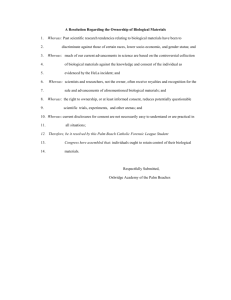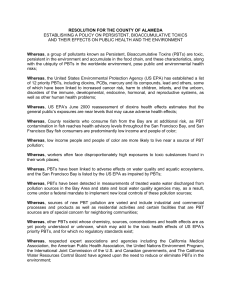Resolution for Environmentally Sound Schools and Education for
advertisement
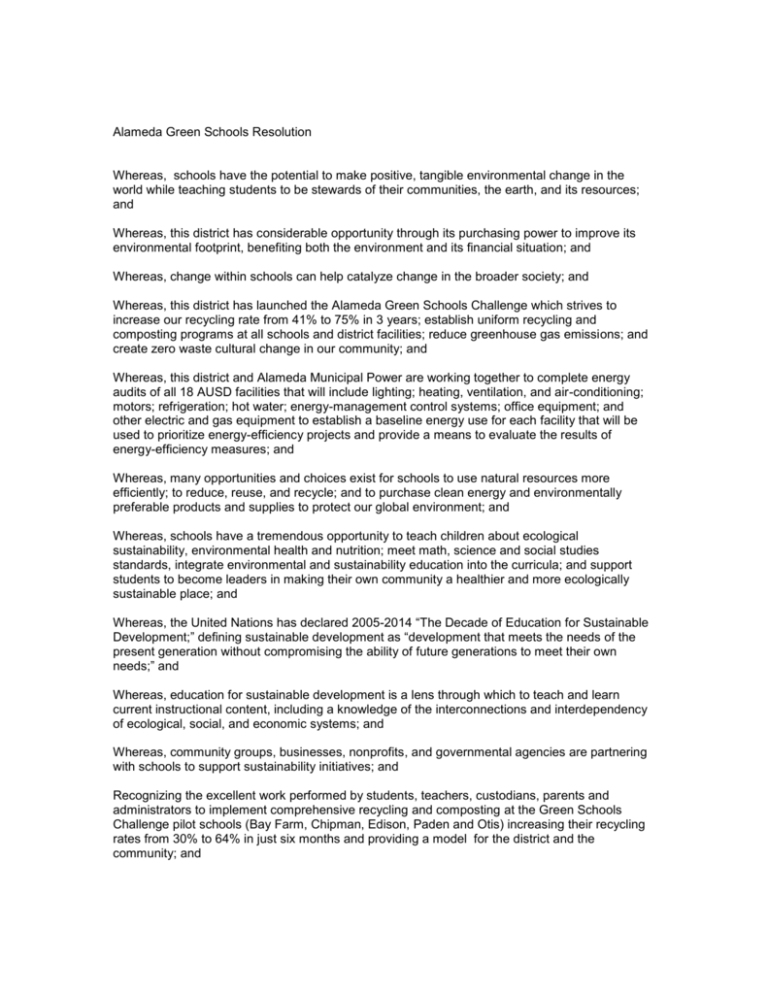
Alameda Green Schools Resolution Whereas, schools have the potential to make positive, tangible environmental change in the world while teaching students to be stewards of their communities, the earth, and its resources; and Whereas, this district has considerable opportunity through its purchasing power to improve its environmental footprint, benefiting both the environment and its financial situation; and Whereas, change within schools can help catalyze change in the broader society; and Whereas, this district has launched the Alameda Green Schools Challenge which strives to increase our recycling rate from 41% to 75% in 3 years; establish uniform recycling and composting programs at all schools and district facilities; reduce greenhouse gas emissions; and create zero waste cultural change in our community; and Whereas, this district and Alameda Municipal Power are working together to complete energy audits of all 18 AUSD facilities that will include lighting; heating, ventilation, and air-conditioning; motors; refrigeration; hot water; energy-management control systems; office equipment; and other electric and gas equipment to establish a baseline energy use for each facility that will be used to prioritize energy-efficiency projects and provide a means to evaluate the results of energy-efficiency measures; and Whereas, many opportunities and choices exist for schools to use natural resources more efficiently; to reduce, reuse, and recycle; and to purchase clean energy and environmentally preferable products and supplies to protect our global environment; and Whereas, schools have a tremendous opportunity to teach children about ecological sustainability, environmental health and nutrition; meet math, science and social studies standards, integrate environmental and sustainability education into the curricula; and support students to become leaders in making their own community a healthier and more ecologically sustainable place; and Whereas, the United Nations has declared 2005-2014 “The Decade of Education for Sustainable Development;” defining sustainable development as “development that meets the needs of the present generation without compromising the ability of future generations to meet their own needs;” and Whereas, education for sustainable development is a lens through which to teach and learn current instructional content, including a knowledge of the interconnections and interdependency of ecological, social, and economic systems; and Whereas, community groups, businesses, nonprofits, and governmental agencies are partnering with schools to support sustainability initiatives; and Recognizing the excellent work performed by students, teachers, custodians, parents and administrators to implement comprehensive recycling and composting at the Green Schools Challenge pilot schools (Bay Farm, Chipman, Edison, Paden and Otis) increasing their recycling rates from 30% to 64% in just six months and providing a model for the district and the community; and Recognizing that the district and Alameda Municipal Power have already implemented energyefficiency retrofits that have saved the district over $2.2 million since 1995; and Recognizing that this framework creates a long-term, inspiring vision that integrates and strengthens many efforts in our district; and Recognizing that fully implementing this resolution will take time, leadership, and collaboration, and must be achieved in stages; Therefore, be it resolved, that the district will continue its excellent progress toward creating environmentally friendly school sites through comprehensive recycling and composting, energy efficiency, water conservation, bay-friendly landscaping, and integrated pest management; and Be it further resolved, that the district will seek opportunities to continually reduce its consumption of natural resources; and Be it further resolved that the district will explore options to enhance healthy environments on its campuses; and Be it further resolved, that the district will support efforts to increase education for sustainable development in its curricula; and Be it further resolved, that the district will encourage the development of school gardens and green schoolyards as hands-on learning tools that promote good nutrition, stewardship the land, and teach to standards; and Be it further resolved, that the district will seek partnerships with local community groups, business leaders, nonprofit organizations, and government agencies to support and increase sustainability initiatives in its schools; and Be it further resolved, that the district will provide leadership to assist the implementation of this resolution by collaborating with the Alameda Schools Green Challenge Committee to monitor progress, manage community partnerships, and further develop an educational program; and Be it finally resolved, that the Alameda Schools Green Challenge Committee will, on or near Earth Day, give an annual report on the district’s environmental footprint, sustainability initiatives, community partnerships, and educational programs.
